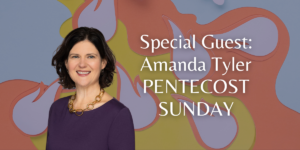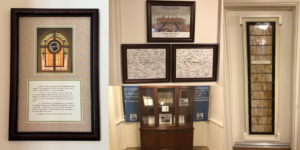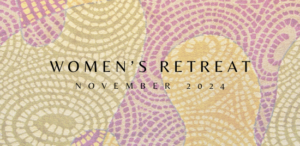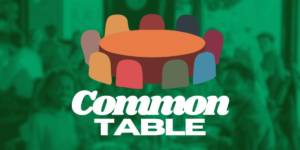The 1960’s brought increased awareness of St. John’s presence in the community and beyond.
In June 1960, instead of a Sunday night worship service, Sunday nights became a time for Bible Study and discussions about various issues. That fall a study began on Sundays and carried over to Wednesday nights entitled “Know Your Neighbors” to acquaint members with beliefs and practices of other religions—Catholic, Episcopal, Presbyterian, Methodist, Lutheran, and Jewish. Other Sunday night topics included Christian Unity, World Missions, World Religions, Alcohol, and Christian Responsibility, and current events such as “The Problem of Red China”. A series in 1962 was entitled “Our Church, Our Town”. One of the first speakers was Stan Brookshire, the Mayor of Charlotte whose topic was “Community Facts of Life”, This series was followed by “Charlotte’s Other Side” – the problems of poverty, health services, second-class citizenship, crime, education, and housing with the question “What Can the Church Do?” There were also programs to acquaint the church with institutions, organizations, and agencies in the community who ministered to “forgotten and neglected groups”.
On this 18th Anniversary as Senior Minister, Dr. Broach wrote, “I urge you to be loyal to the task which is uniquely committed to this church= to find ways to express the meaning of the Christian gospel in the life of the church—to be the church in today’s world without dodging issues, without cheapening discipleship, without losing the warm heart and compassionate hand”.
In 1963, Rev Bob Lasater attended. the meeting of the Southern Baptist Convention. In a foreshadowing of things to come, he reported that there were pressure groups of ultra-conservative people who are seeking to dominate the Convention. He continued – “they are not our kind of Baptist, and they are trying to make of our denomination something it has never been. If they succeed, the Convention will be split asunder.
In 1965, Dr. Broach attended the closing session of the Vatican Ecumenical Council in Rome as an observer. Upon his return, he wrote in the Family News- “I have grown up as a positive Protestant suspicious of the Roman Catholic Church and resentful of its attitude toward people of other faiths. Only in recent years have I begun to feel that there were many Catholics who delf the same way about their own church and who wanted the Church to abandon or alter its medieval posture toward the world and the Christian movement. Pope John XXIII recognized the Church needed reform and renewal”.
Also in 1965, Sunday Night Roundtables were begun for the Youth with the purpose of exploring the areas of study which would be of concern to the teenagers as they look at the world around them, making them more deeply committed and informed disciples. In May 1966, Harry Golden, the editor of The Carolina Israelite who formerly worked for the New York Post and the New York Daily Mirror, spoke to the Senior Highs on “The Civil Rights of the Individual under various Types of World Governments’,
In 1967 the church voted to establish a Mission Action Committee recognizing that “missions were no longer giving money to establish a Christian ministry “over there”. Missions is personal involvement in Christian action on our own doorstep. The missionary is not the professional worker whom the church supports. He is the average church member who gets his hands dirty, and his spirit lifted to face service to nearby people”.









